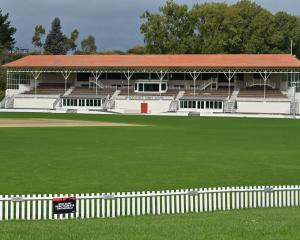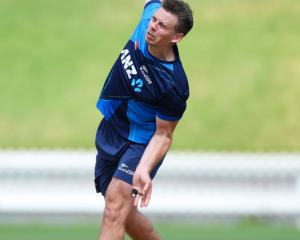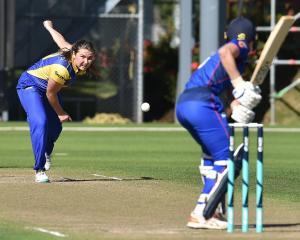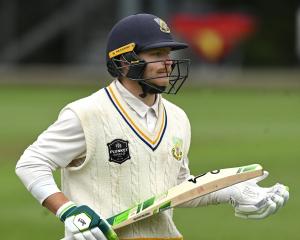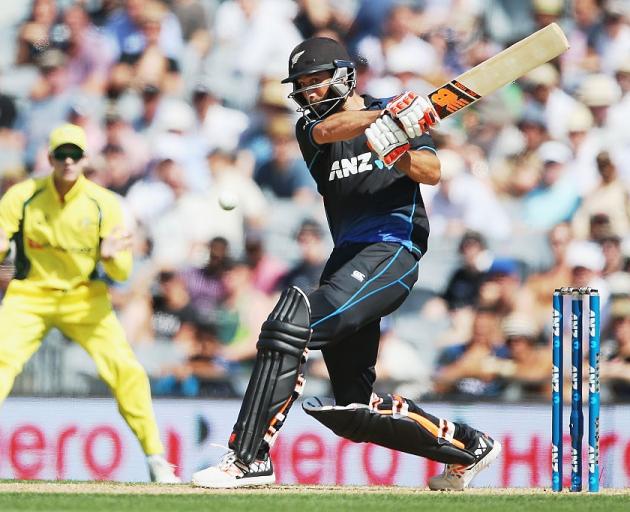
In 39 ODIs, New Zealand have batted first 23 times and won nine matches for a 39% winning record across the Tasman. That drops to 25%, with four wins from 16 matches, batting second.
It helps to win the toss and bat.
Theories abound as to why hunting proves more difficult than setting. Scoreboard pressure, early evening swing, crowd intimidation and heat exhaustion are among the hypotheses.
Former Black Caps ODI representatives Jacob Oram and Grant Elliott have the best New Zealand averages in the second innings for anyone playing three or more innings away against Australia.
They are two of the four New Zealanders - in addition to Bruce Edgar and Stephen Fleming - to make ODI centuries chasing against their trans-Tasman hosts. Fleming, with 116 not out chasing 252 at Melbourne in January 1998, is the only New Zealander to do so in a winning effort.
Elliott is now considered a bona fide chasing expert after his 84 not out, including the six off Dale Steyn's penultimate ball, to take New Zealand to their first World Cup final last year.
The 37-year-old averaged 61.33 at a strike rate of 80 from four innings batting second in Australia. In 2009 that included 61 not out in the six-wicket win at Melbourne and 115 in the 32-run loss at Sydney, both venues in the upcoming series. He has also never been part of a squad which has lost a Chappell-Hadlee series.
"I'm a big fan of chasing. If you know what you need to score, then you can only blame yourself if you don't get there," Elliott told the Herald from Chittagong where he is playing in the Bangladesh Premier League.
"Rather than being 280-4, I would rather know you can use all your wickets trying to get 281.
"I really enjoyed playing in Australia on what I'd consider the world's best batting pitches.
"A rule of thumb is that you've always got longer than you think; the deeper you take the game, the more mistakes the opposition make."
Bigger fields also require strategic thinking.
"Pushing [the ball] into gaps or hitting over extra cover and mid-wicket are key skills," Elliott said.
"Basically you've got to find open areas and rotate the strike, whereas on smaller New Zealand grounds you can release the pressure with one big heave.
"I remember looking at their fields and thinking 'this is awesome' because, at the time, I was someone who looked to place the ball for four rather than going for a six."
Oram averaged 63.50 at a strike rate of 125 from three innings batting second in Australia. In 2007 that included 101 not out in an eight-run loss chasing 344 to win at Perth.
"In Australia you skin the cat differently by turning ones into twos and twos into threes with so much space, rather than relying on hitting boundaries.
"You can score more than you probably think. It's a matter of being fit, and a good judge of a run.
"I remember being in a strong position in one match when Michael Clarke came out, played low risk cricket working the ball around, and they ended up getting home easily."
Oram said the New Zealanders needed to take the crowd's exuberance in their stride.
"If you're getting smoked and bowling badly, it's probably warranted. I never found it to be untoward. It's not a great feeling to have the odd bottle top or coin fly past you, but I wouldn't have said there was anything I didn't anticipate. Even at Melbourne, where it was nowhere near full with a crowd of 50,000-60,000, it was still a great experience."
Oram said heat wasn't as much of a concern in the modern era.
"Playing so often on the sub-continent makes a difference these days. You have better ways to deal with sweat and rehydration with the right electrolyte drinks. It's just important to have a process at drinks breaks and with regular changes of gloves to make sure you're on top of things."


